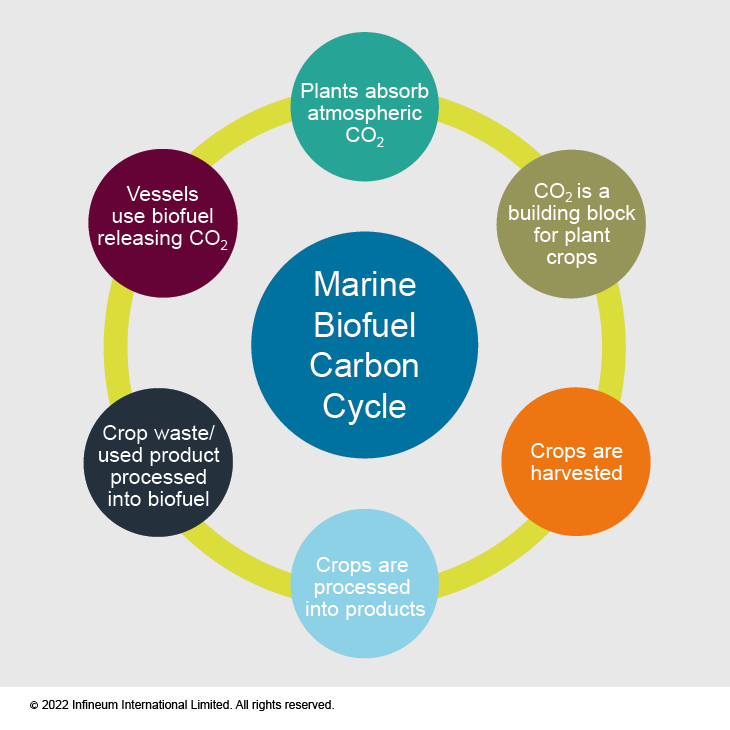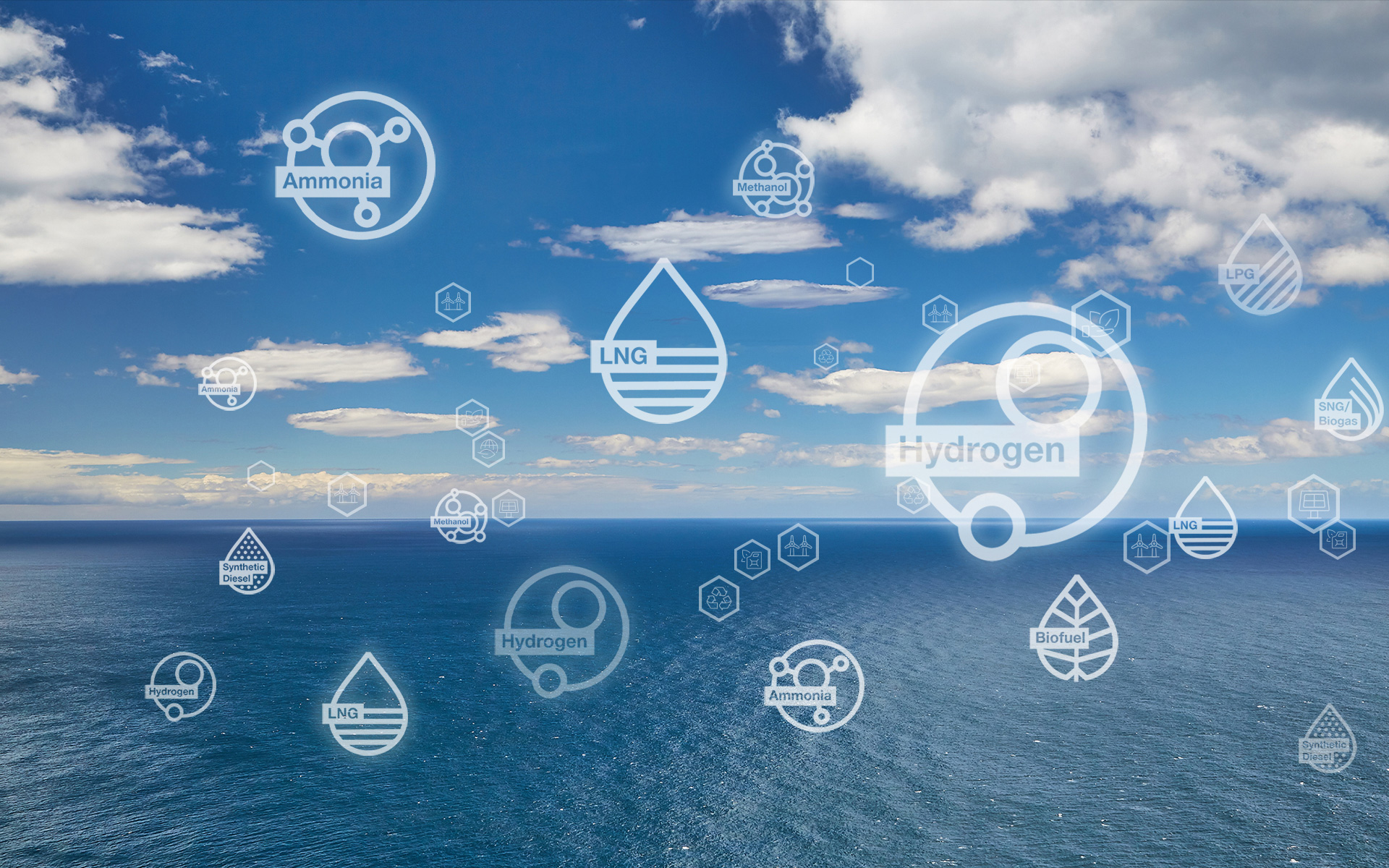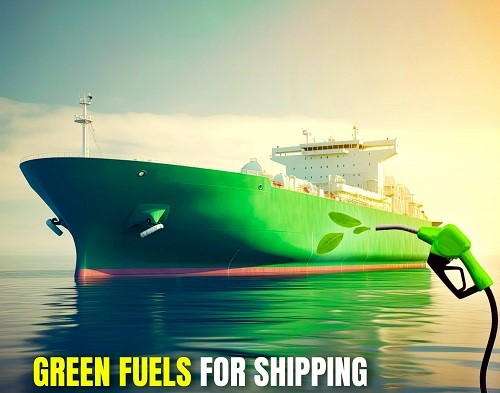The global shipping industry, which moves over 80% of the world’s trade, is facing an unprecedented challenge: decarbonization. With environmental regulations tightening and pressure from stakeholders growing, shipping companies are grappling with how to reduce their carbon footprint while maintaining profitability. This article explores the current landscape of decarbonization in maritime, its implications for ship owners and operators, and the innovative solutions being developed to overcome this challenge. 
The Urgent Need for Change
Shipping has traditionally been one of the most carbon-intensive industries, responsible for approximately 2-3% of global greenhouse gas emissions. This may seem like a small percentage, but it equates to over 900 million metric tons of CO2 annually, making it a major focus for international environmental policy. The International Maritime Organization (IMO) has set ambitious targets for reducing carbon emissions, aiming for a 50% cut by 2050 compared to 2008 levels, with the ultimate goal of phasing out carbon emissions entirely by the end of the century.
The urgency of decarbonization is driven by two key factors: rising environmental awareness and regulatory pressure. Governments and consumers are increasingly demanding greener solutions, while major economies like the European Union have implemented policies, such as the European Union Emissions Trading System (EU ETS), to penalize carbon emissions. The IMO’s Energy Efficiency Design Index (EEDI) and Carbon Intensity Indicator (CII) have also placed significant responsibility on shipowners to upgrade their fleets or face financial penalties.
Technological and Financial Hurdles
Decarbonizing the shipping industry is no small feat. The sector is heavily reliant on fossil fuels, particularly heavy fuel oil (HFO), which is both inexpensive and energy-dense. Transitioning to alternative fuels and technologies will require massive investments in research, development, and fleet upgrades.
Several alternative fuels are being explored, but each presents its own set of challenges. Liquefied natural gas (LNG) has been touted as a cleaner alternative to HFO, but it still emits carbon, and the infrastructure needed to support it is limited. Ammonia and hydrogen are promising zero-carbon fuels, but they are expensive and not yet widely available for commercial use. Moreover, these fuels require new engine designs and modifications to existing vessels, leading to substantial retrofitting costs.
In addition to fuel alternatives, the shipping industry is exploring technologies like wind-assisted propulsion and electric or hybrid ships, but these options are still in their infancy and mostly suitable for smaller vessels or short voyages. The uncertainty surrounding which technology will become the dominant solution adds another layer of complexity for shipowners trying to make long-term investment decisions. 
The Economic Impact
Decarbonization comes at a price—literally. According to some estimates, achieving the IMO’s targets could cost the shipping industry upwards of $1 trillion. These costs will be borne by shipowners and operators, many of whom are already operating on thin margins due to volatile freight rates and rising operational costs.
However, the economic impacts extend beyond the shipping companies themselves. Ports, shipyards, and fuel suppliers will all need to adapt to support greener shipping practices. Investments in infrastructure, such as refueling stations for alternative fuels and electric charging points, will be essential to ensure the smooth transition toward decarbonization. For countries with major maritime hubs, such as Greece, Singapore, and China, the financial burden will be significant, but so will the potential rewards if they can position themselves as leaders in green shipping.
Collaboration and Innovation: The Way Forward
Despite the enormous challenges, there is optimism within the industry that the goal of decarbonization is achievable. Collaboration between governments, the private sector, and international organizations will be essential in driving forward new regulations and promoting the development of green technologies.
Public-private partnerships, such as the Poseidon Principles, which bring together financial institutions and shipowners to incentivize greener investments, are already starting to have an impact. The Getting to Zero Coalition, a group of over 150 companies, is working to accelerate the development of zero-emission vessels and fuels.
Innovation will be key to overcoming the technological barriers to decarbonization. Major shipping companies, including Maersk and CMA CGM, are investing heavily in research and development, exploring everything from fuel cells to carbon capture technologies. Digital solutions, such as predictive maintenance and route optimization, are also helping to reduce fuel consumption and emissions, offering a more immediate way to make shipping greener.
The maritime industry stands at a crossroads, with decarbonization as its most significant challenge to date. The path ahead is fraught with technical, financial, and regulatory obstacles, but it is also an opportunity for innovation and growth. By embracing cleaner technologies, investing in alternative fuels, and working together across sectors, the shipping industry can navigate its way toward a more sustainable future.
The stakes are high, but so are the rewards: a greener, more efficient maritime sector that can continue to play a vital role in the global economy without compromising the health of our planet.
Greek Shipping at the Crossroads: Decarbonization and the Decisions Facing Greek Shipowners
Greek shipping, a cornerstone of the global maritime industry, has long been a leader in international trade. With Greek shipowners controlling one of the largest fleets in the world, their decisions play a pivotal role in shaping the future of global shipping. Today, the industry faces its greatest challenge yet: decarbonization. As environmental regulations tighten, Greek shipowners are under pressure to reduce their carbon footprint while maintaining the competitiveness of their fleets. This article explores how Greek shipping is navigating the decarbonization challenge, the decisions facing shipowners, and the innovative solutions emerging to ensure the sector’s continued success.
The Importance of Greek Shipping in the Global Economy
Greece is a maritime powerhouse. Greek shipowners control around 20% of the global merchant fleet and nearly 59% of the European Union’s fleet. This influence is especially pronounced in key sectors like bulk carriers, tankers, and liquefied natural gas (LNG) transport. With such a dominant presence, the decisions made by Greek shipowners regarding the future of their fleets will have a significant impact not only on their businesses but also on the global supply chain and the shipping industry’s ability to meet international environmental targets.
The urgency to act is clear. The International Maritime Organization (IMO) has set ambitious goals to cut greenhouse gas emissions from shipping by at least 50% by 2050, compared to 2008 levels. For Greek shipowners, who operate large and diverse fleets, balancing compliance with these regulations while ensuring profitability is a complex and multifaceted challenge.
Challenges for Greek Shipowners: Fleet Modernization and Fuel Choices
One of the biggest questions facing Greek shipowners is how to modernize their fleets in a way that aligns with decarbonization goals. The Greek fleet, known for its size and versatility, consists of many vessels that have been built to maximize fuel efficiency under current fuel options, particularly heavy fuel oil (HFO). However, the reliance on HFO, a carbon-intensive fuel, is increasingly becoming unsustainable. Transitioning to alternative fuels such as LNG, ammonia, or hydrogen requires significant capital investment, both for retrofitting existing ships and building new vessels that can handle these greener options.
While LNG has gained traction as a “bridge fuel” because it produces less carbon than HFO, it still contributes to greenhouse gas emissions. Furthermore, the infrastructure needed to support widespread LNG use—such as refueling stations—remains limited. On the other hand, zero-carbon fuels like ammonia and hydrogen, although promising, are still in the early stages of development and face technical challenges. Shipowners need to weigh these options carefully, as each fuel type presents different trade-offs in terms of cost, availability, and long-term sustainability.
For Greek shipowners, many of whom operate in highly competitive markets such as dry bulk and oil tankers, making the right choice of alternative fuel is crucial. The wrong decision could lead to significant financial losses, especially in an industry where margins are tight and the cost of retrofitting or building new vessels can be prohibitively high.
Regulatory Pressure and Financial Implications
As the IMO and the European Union push for stricter emissions regulations, Greek shipowners must comply with a growing array of standards. The European Union's Emissions Trading System (EU ETS), which will extend to include shipping from 2024, is particularly concerning for the Greek maritime industry. This system will require shipowners to buy carbon allowances for their emissions, adding another layer of cost to their operations.
The Poseidon Principles, a global framework for responsible ship finance supported by major Greek and international banks, are also shaping decisions in the sector. Under these principles, shipowners are evaluated based on the environmental impact of their fleets, and greener fleets can access more favorable financing terms. This places added pressure on Greek shipowners to invest in decarbonization or risk losing access to competitive financing.
Additionally, with the Energy Efficiency Existing Ship Index (EEXI) and the Carbon Intensity Indicator (CII), Greek shipowners must ensure their fleets meet increasingly stringent performance standards. Failing to comply could result in higher operating costs, penalties, or even restrictions on their ability to operate in certain jurisdictions.
The Greek Response: Innovation and Adaptation
Despite these challenges, Greek shipowners are known for their resilience and adaptability. Many are already taking steps to future-proof their fleets. Leading Greek shipping companies, such as Capital Maritime & Trading Corp and Angelicoussis Shipping Group, have started investing in dual-fuel vessels that can operate on LNG and other alternative fuels. These early adopters are setting an example for the broader industry, showing that innovation and decarbonization can go hand-in-hand with profitability.
Another area of focus for Greek shipowners is improving the energy efficiency of existing vessels. Technologies such as air lubrication systems, wind-assist propulsion, and optimized hull designs are helping to reduce fuel consumption and emissions. Digitalization is also playing a key role in this transformation, with advanced data analytics and AI-powered solutions being used to optimize shipping routes, monitor vessel performance, and reduce fuel use.
Collaboration between Greek shipowners and international organizations is also critical. Initiatives such as the Green Shipping Programme, led by the Greek government, are helping to position Greece as a leader in sustainable maritime practices. Partnerships between Greek shipping companies, universities, and research institutions are driving innovation in alternative fuels and green technologies, ensuring that Greek shipping remains at the forefront of global decarbonization efforts.
Opportunities and Future Prospects
While the decarbonization challenge is daunting, it also presents significant opportunities for Greek shipping. By investing in greener technologies and alternative fuels, Greek shipowners can position themselves as leaders in the transition to a more sustainable future. Moreover, as the world increasingly demands cleaner and more environmentally friendly transportation, the companies that are able to adapt will have a competitive advantage in a changing market.
Greek shipowners have a proud tradition of seafaring that spans thousands of years, and they have repeatedly demonstrated their ability to adapt to changing circumstances. The current challenge of decarbonization is no different. By making strategic investments in their fleets, adopting new technologies, and complying with international regulations, Greek shipowners can ensure that they not only survive but thrive in the era of green shipping. Greek shipping is at a critical juncture. The challenge of decarbonization is one that cannot be ignored, and the decisions made by Greek shipowners today will determine the future of their fleets and the industry as a whole. While the path ahead is filled with uncertainty, it is also rich with opportunity. By embracing innovation, investing in green technologies, and collaborating with global stakeholders, Greek shipping can lead the way toward a more sustainable and profitable future.
Alexandros Kelmalis
PhD
Operations Dept Koumanias Shipping Operations










